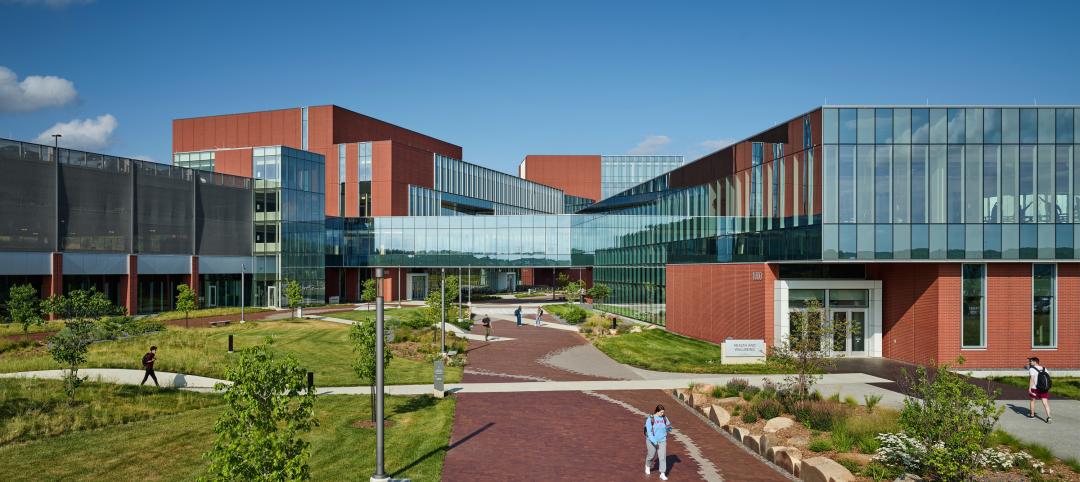PORTLAND, Ore. – Demand for the services of commissioning professionals is rising and will continue to rise into the near future, according to a survey by PECI and the Building Commissioning Association (BCA).
The numbers tell the story of an industry experiencing growth as a result of the increasing popularity of buildings that earn green certifications. In addition, the commissioning industry expects the adoption of more ambitious building and energy codes nationwide to further amplify demand. Together, these factors have created a need for training services that will expand the commissioning workforce and allow the industry to effectively meet these new, rising needs.
We asked attendees of the BCA’s National Conference on Building Commissioning (NCBC) to assess their professional experiences in a variety of areas, including: current motivators for commissioning work; expected changes to the commissioning industry as a result of new building codes; and training needs. The survey revealed that:
· 72 percent of respondents, mostly commissioning professionals, have experienced more demand for new building commissioning services in the past year.
· 69 percent have experienced more demand for existing building commissioning in the past year.
· Green building certifications like LEED® and ENERGYSTAR are significant motivators for commissioning, according to 68 percent of those surveyed.
· Green certifications are followed closely by corporate environmental goals, which were cited as motivators by 64 percent of respondents.
· 56 percent expect changes to building and energy codes to drive an additional increase in demand for commissioning.
· The rising demand has created a need for training industry wide; 68 percent cited a need for training on specialty systems like building enclosures and renewables.
· In order to adapt to new building codes and rising demand, respondents anticipate a need for increased training and certification and the deployment of larger teams with broader skill sets.
Read a more detailed summary of the survey findings here.
The survey findings support the recent creation of a comprehensive Commissioning Authority Training program, which PECIand the BCA developed in tandem and launched this spring. Read more about the curriculum at learn.peci.org.
The findings also correlate with the results of this year’s BCA Leadership Conference, where 71 commissioning authorities representing 66 U.S. and Canadian firms planned the association’s roadmap in strategic areas of education, best practices, certification, codes and standards and international development.
PECI and the BCA have supported the positive evolution of the commissioning industry for decades. PECI helped pioneer commissioning processes and best practices and remains a leader in the development of commissioning programs, research and tools. “PECI’s mission has always aligned exactly with the mission of the commissioning industry,” said Dan Reese, PECISenior Program Manager. “This survey was our latest effort to stay informed and serve the industry as best we can.”
“The BCA helps members and their organizations meet challenges and changes as they arise within the commissioning profession. We worked with PECI to develop this survey and a training program that will help produce outstanding new commissioning professionals and also deepen the knowledge and skills of existing ones,” said Liz Fischer, Executive Director. “Our job is to make sure the industry is ready to embrace the increasing demand and thrive.”
About PECI
PECI is a leader in the field of energy efficiency solutions, with expertise in designing and delivering programs for utility and government agency clients. Through sustained market and customer engagement, PECI achieves persistent energy savings and reaches millions of residential, commercial and industrial customers. A nonprofit corporation dedicated to creating the new energy economy, PECI was founded in 1980 and has offices in Portland, Oregon as well as Northern and Southern California. To learn more visit www.peci.org.
About BCA
The Building Commissioning Association is an international non-profit organization that serves as the recognized authority and resource on commissioning. Our membership is made up of professionals from the commercial building industry who are dedicated to using and maintaining the highest standards and practices in the commissioning process. The mission of the BCAis to guide the building commissioning industry by advancing best practices, education and promoting the benefits of commissioning to design and construct buildings that work. Learn more at www.bcxa.org.
Related Stories
Sustainable Design and Construction | Oct 10, 2024
Northglenn, a Denver suburb, opens a net zero, all-electric city hall with a mass timber structure
Northglenn, Colo., a Denver suburb, has opened the new Northglenn City Hall—a net zero, fully electric building with a mass timber structure. The 32,600-sf, $33.7 million building houses 60 city staffers. Designed by Anderson Mason Dale Architects, Northglenn City Hall is set to become the first municipal building in Colorado, and one of the first in the country, to achieve the Core certification: a green building rating system overseen by the International Living Future Institute.
3D Printing | Oct 9, 2024
3D-printed construction milestones take shape in Tennessee and Texas
Two notable 3D-printed projects mark milestones in the new construction technique of “printing” structures with specialized concrete. In Athens, Tennessee, Walmart hired Alquist 3D to build a 20-foot-high store expansion, one of the largest freestanding 3D-printed commercial concrete structures in the U.S. In Marfa, Texas, the world’s first 3D-printed hotel is under construction at an existing hotel and campground site.
University Buildings | Oct 9, 2024
Des Moines University Medicine and Health Sciences opens a new 88-acre campus
Des Moines University Medicine and Health Sciences has opened a new campus spanning 88 acres, over three times larger than its previous location. Designed by RDG Planning & Design and built by Turner Construction, the $260 million campus features technology-rich, flexible educational spaces that promote innovative teaching methods, expand research activity, and enhance clinical services. The campus includes four buildings connected with elevated pathways and totaling 382,000 sf.
Student Housing | Oct 9, 2024
University of Maryland begins work on $148 million graduate student housing development
The University of Maryland, in partnership with Campus Apartments and Mosaic Development Partners, has broken ground on a $148.75 million graduate student housing project on the university’s flagship College Park campus. The project will add 741 beds in 465 fully furnished apartments.
AEC Tech Innovation | Oct 8, 2024
New ABC technology report examines how AI can enhance efficiency, innovation
The latest annual technology report from Associated Builders and Contractors delves into how artificial intelligence can enhance efficiency and innovation in the construction sector. The report includes a resource guide, a case study, insight papers, and an essay concerning applied uses for AI planning, development, and execution.
Healthcare Facilities | Oct 8, 2024
Herzog & de Meuron completes Switzerland’s largest children’s hospital
The new University Children’s Hospital Zurich features 114 rooftop patient rooms designed like wooden cottages with their own roofs. The project also includes a research and teaching facility.
Mixed-Use | Oct 7, 2024
New mixed-use tower by Studio Gang completes first phase of San Francisco waterfront redevelopment
Construction was recently completed on Verde, a new mixed-use tower along the San Francisco waterfront, marking the end of the first phase of the Mission Rock development. Verde is the fourth and final building of phase one of the 28-acre project that will be constructed in several phases guided by design principles developed by a design cohort led by Studio Gang.
Brick and Masonry | Oct 7, 2024
A journey through masonry reclad litigation
This blog post by Walter P Moore's Mallory Buckley, RRO, PE, BECxP + CxA+BE, and Bob Hancock, MBA, JD, of Munsch Hardt Kopf & Harr PC, explains the importance of documentation, correspondence between parties, and supporting the claims for a Plaintiff-party, while facilitating continuous use of the facility, on construction litigation projects.
University Buildings | Oct 4, 2024
Renovations are raising higher education campuses to modern standards
AEC higher ed Giants report working on a variety of building types, from performing arts centers and libraries to business schools. Hybrid learning is seemingly here to stay. And where possible, these projects address wellness and mental health concerns.
Laboratories | Oct 2, 2024
Trends in scientific research environments: Q&A with Flad's Matt McCord
As part of an ongoing series, Matt McCord, AIA, NCARB, LEED AP BD+C, Associate Principal with Flad Architects, discusses the future of the scientific workplace.

















